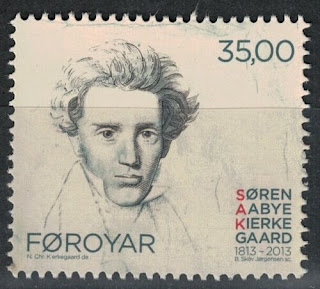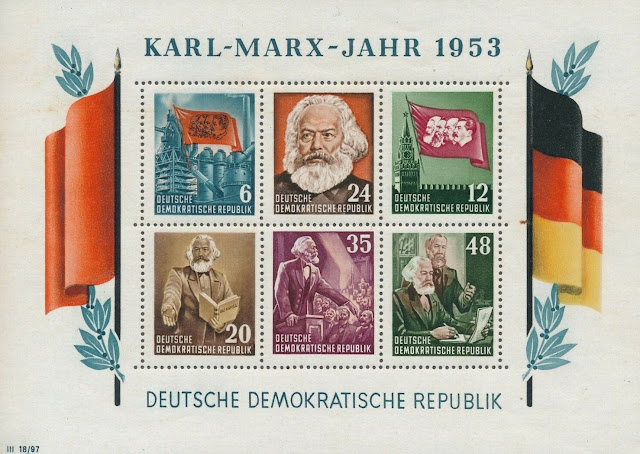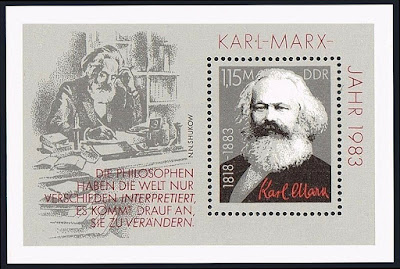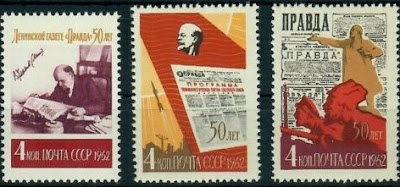1813 Born: Søren Kierkegaard, Danish philosopher and author (d. 1855)
Søren Aabye Kierkegaard (5 May 1813 – 11 November 1855) was a Danish philosopher, theologian, poet, social critic and religious author who is widely considered to be the first existentialist philosopher. He wrote critical texts on organized religion, Christendom, morality, ethics, psychology, and the philosophy of religion, displaying a fondness for metaphor, irony and parables. Much of his philosophical work deals with the issues of how one lives as a "single individual", giving priority to concrete human reality over abstract thinking and highlighting the importance of personal choice and commitment. He was against literary critics who defined idealist intellectuals and philosophers of his time, and thought that Swedenborg, Hegel, Fichte, Schelling, Schlegel and Hans Christian Andersen were all "understood" far too quickly by "scholars".
Kierkegaard's theological work focuses on Christian ethics, the institution of the Church, the differences between purely objective proofs of Christianity, the infinite qualitative distinction between man and God, and the individual's subjective relationship to the God-Man Jesus the Christ, which came through faith. Much of his work deals with Christian love. He was extremely critical of the practice of Christianity as a state religion, primarily that of the Church of Denmark. His psychological work explored the emotions and feelings of individuals when faced with life choices.
Kierkegaard's early work was written under the various pseudonyms to present distinctive viewpoints that interact in complex dialogue. He explored particularly complex problems from different viewpoints, each under a different pseudonym. He wrote many Upbuilding Discourses under his own name and dedicated them to the "single individual" who might want to discover the meaning of his works. Notably, he wrote: "Science and scholarship want to teach that becoming objective is the way. Christianity teaches that the way is to become subjective, to become a subject." While scientists can learn about the world by observation, Kierkegaard emphatically denied that observation alone could reveal the inner workings of the world of the spirit.
Some of Kierkegaard's key ideas include the concept of "subjective and objective truths", the knight of faith, the recollection and repetition dichotomy, angst, the infinite qualitative distinction, faith as a passion, and the three stages on life's way. Kierkegaard wrote in Danish and the reception of his work was initially limited to Scandinavia, but by the turn of the 20th century his writings were translated into French, German, and other major European languages. By the mid-20th century, his thought exerted a substantial influence on philosophy, theology, and Western culture.
Stamp issued by the Faeroe Islands depicting Kierkegaard
1818 Born: Karl Marx, German philosopher, sociologist, and journalist (d. 1883)
Karl Heinrich Marx (5 May 1818 – 14 March 1883) was a German philosopher, economist, historian, sociologist, political theorist, journalist and socialist revolutionary.
Born in Trier, Germany, Marx studied law and philosophy at university. He married Jenny von Westphalen in 1843. Due to his political publications, Marx became stateless and lived in exile with his wife and children in London for decades, where he continued to develop his thought in collaboration with German thinker Friedrich Engels and publish his writings, researching in the reading room of the British Museum. His best-known titles are the 1848 pamphlet, The Communist Manifesto, and the three-volume Das Kapital. His political and philosophical thought had enormous influence on subsequent intellectual, economic and political history, and his name has been used as an adjective, a noun and a school of social theory.
Marx's critical theories about society, economics and politics – collectively understood as Marxism – hold that human societies develop through class struggle. In capitalism, this manifests itself in the conflict between the ruling classes (known as the bourgeoisie) that control the means of production and the working classes (known as the proletariat) that enable these means by selling their labour power in return for wages. Employing a critical approach known as historical materialism, Marx predicted that, like previous socio-economic systems, capitalism produced internal tensions which would lead to its self-destruction and replacement by a new system known as socialism.
For Marx, class antagonisms under capitalism, owing in part to its instability and crisis-prone nature, would eventuate the working class' development of class consciousness, leading to their conquest of political power and eventually the establishment of a classless, communist society constituted by a free association of producers. Marx actively pressed for its implementation, arguing that the working class should carry out organised revolutionary action to topple capitalism and bring about socio-economic emancipation.
Marx has been described as one of the most influential figures in human history, and his work has been both lauded and criticised. His work in economics laid the basis for much of the current understanding of labour and its relation to capital, and subsequent economic thought. Many intellectuals, labour unions, artists and political parties worldwide have been influenced by Marx's work, with many modifying or adapting his ideas. Marx is typically cited as one of the principal architects of modern social science.
East and West German stamps depicting Karl Marx
1821 Died: Napoleon, French general and emperor (b. 1769 )
Napoleon Bonaparte (15 August 1769 – 5 May 1821), born Napoleone di Buonaparte, was a French statesman and military leader who became famous as an artillery commander during the French Revolution. He led many successful campaigns during the French Revolutionary Wars and was Emperor of the French as Napoleon I from 1804 until 1814 and again briefly in 1815 during the Hundred Days. Napoleon dominated European and global affairs for more than a decade while leading France against a series of coalitions during the Napoleonic Wars. He won many of these wars and a vast majority of his battles, building a large empire that ruled over much of continental Europe before its final collapse in 1815. He is considered one of the greatest commanders in history, and his wars and campaigns are studied at military schools worldwide. Napoleon's political and cultural legacy has made him one of the most celebrated and controversial leaders in human history.
Napoleon's influence on the modern world brought liberal reforms to the numerous territories that he conquered and controlled, such as the Low Countries, Switzerland, and large parts of modern Italy and Germany. He implemented fundamental liberal policies in France and throughout Western Europe. His Napoleonic Code has influenced the legal systems of more than 70 nations around the world. British historian Andrew Roberts states: "The ideas that underpin our modern world—meritocracy, equality before the law, property rights, religious toleration, modern secular education, sound finances, and so on—were championed, consolidated, codified and geographically extended by Napoleon. To them he added a rational and efficient local administration, an end to rural banditry, the encouragement of science and the arts, the abolition of feudalism and the greatest codification of laws since the fall of the Roman Empire".
Stamps from France and Monaco commemorating Napoleon
1846 Born: Henryk Sienkiewicz, Polish journalist and author, Nobel Prize laureate (d. 1916)
Henryk Adam Aleksander Pius Sienkiewicz (5 May 1846 – 15 November 1916), also known by the pseudonym Litwos, was a Polish journalist, novelist and Nobel Prize laureate. He is best remembered for his historical novels, especially for his internationally known best-seller Quo Vadis (1896).
Born into an impoverished Polish noble family in Russian-ruled Congress Poland, in the late 1860s he began publishing journalistic and literary pieces. In the late 1870s he traveled to the United States, sending back travel essays that won him popularity with Polish readers. In the 1880s he began serializing novels that further increased his popularity. He soon became one of the most popular Polish writers of the turn of the 19th and 20th centuries, and numerous translations gained him international renown, culminating in his receipt of the 1905 Nobel Prize in Literature for his "outstanding merits as an epic writer."
Many of his novels remain in print. In Poland he is best known for his "Trilogy" of historical novels – With Fire and Sword, The Deluge, and Sir Michael – set in the 17th-century Polish–Lithuanian Commonwealth; internationally he is best known for Quo Vadis, set in Nero's Rome. The Trilogy and Quo Vadis have been filmed, the latter several times, with Hollywood's 1951 version receiving the most international recognition.
Polish stamps depicting Henryk Sienkiewicz
Polish stamps depicting Henryk Sienkiewicz
Pravda (Russian: Правда, "Truth") is a Russian broadsheet newspaper, formerly the official newspaper of the Communist Party of the Soviet Union, when it was one of the most influential papers in the country with a circulation of 11 million. The newspaper began publication on 5 May 1912 in the Russian Empire, but was already extant abroad in January 1911. It emerged as a leading newspaper of the Soviet Union after the October Revolution. The newspaper was an organ of the Central Committee of the CPSU between 1912 and 1991.
After the dissolution of the Soviet Union Pravda was sold off by Russian President Boris Yeltsin to a Greek business family in 1996, and the paper came under the control of their private company Pravda International.
In 1996, there was an internal dispute between the owners of Pravda International and some of the Pravda journalists which led to Pravda splitting into different entities. The Communist Party of the Russian Federation acquired the Pravda paper, while some of the original Pravda journalists separated to form Russia's first online paper (and the first online English paper) Pravda.ru, which is not connected to the Communist Party. After a legal dispute between the rival parties, the Russian court of arbitration stipulated that both entities would be allowed to continue using the Pravda name.
The Pravda paper is today run by the Communist Party of the Russian Federation, whereas the online Pravda.ru is privately owned and has international editions published in Russian, English, French and Portuguese.
Russian stamps issued to commemorate the Pravda newspaper











No comments:
Post a Comment